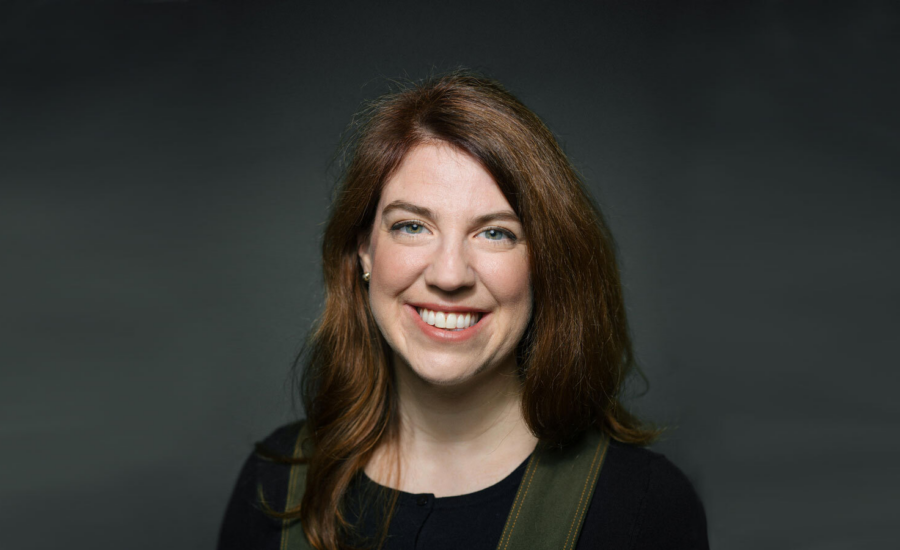Shannon Lee Simmons defines “emotional return on investment” and her take on personal debt
Author and Certified Financial Planner Shannon Lee Simmons explains her definition of financial value, and how she overcame credit card debt.
Advertisement
Author and Certified Financial Planner Shannon Lee Simmons explains her definition of financial value, and how she overcame credit card debt.

Three-time author, founder and Certified Financial Planner Shannon Lee Simmons is no stranger to going off-budget—and she’s not afraid to talk about it. After quitting her Bay Street job to start her own advice-only financial planning firm, the New School of Finance, she found herself in more debt than she planned for. Instead of drowning in guilt and shame, she sought to pay it off in a sustainable way. Today, Simmons helps clients and readers find their way through similar obstacles and life challenges—with “awesome, accessible and affordable financial planning advice.” Take notes as she walks us through everything from her definition of necessary splurges to reframing your views on personal debt.
My first boss on Bay Street. She taught me so much. She was such an inspiration and a total boss.
Always with my fam’. I have two young boys, so we get up to a bunch of stuff every weekend. We are at home in the woods. You can often find us out for a hike, snowshoeing, cross country skiing, making maple syrup.
All of the above—spending time with my family outside! I do think I’d still work though, just maybe not at the same clip I’m going now.
My parents ran a family business, and we talked about money all the time. I knew that sometimes you’re up and sometimes you’re down. And I learned you have to work to earn money. I was a kid who tried to scale my lemonade stand.
The 1992 CD, Ace of Base, by The Sign.
I ran an agency after trying to make a real-life Babysitters Club in my neighbourhood. Aside from starting my own lemonade stands and my babysitting business, my first job was at a concession stand at a community centre. I spent my paycheque on a new shirt for school.
Slow and steady almost always wins the race. Over time, the most successful people have consistent savings habits and patience. Time is on your side.
It’s important to talk about money. Talking openly and honestly about money with friends and family helps reduce financial anxiety. And it leads to more empathy and less judgment for others and ourselves. I think it’s important that it not be taboo.
Any advice from a get-rich-quick-scheme. If someone is promising you they can make you a lot of money quickly, then they are likely taking on too much risk.
Oh. Probably a large sum up front. Then I could start enjoying it right away.
Automate savings. Even $10 works.
That it happens quickly—it takes time.
I quit my Bay Street job to start the New School of Finance. But, I blew through my money faster than I budgeted for and I ended up taking on a ton of credit card debt in my first year. I pulled money out of my savings to pay it off.
I have a term that I talk about in Worry-Free Money (HarperCollins, December 2017) called EROI—emotional return on investment. It’s how you judge a purchase for emotional satisfaction or value. A funny example of this for me is the money I pay to cover my grey roots. This has a very high EROI for me, but something many of my pals feel is such a waste of money.
The first major purchase I made as an adult was a new couch. After university, I moved out on my own with hand-me-down furniture. I then bought a bed frame after purchasing my first couch. I felt so grown up.
No one wants to be in debt, but life happens. The worst thing you can do is blame and shame yourself. It often leads to loss of hope and overspending. Pay down debt in a sustainable way that doesn’t set you up for failure.
An outfit for the No-Regret Decisions book launch party.
Read an excerpt from No-Regret Decisions (HarperCollins, January 2023), entitled “How to make better financial decisions—without regret—in a crisis.”
Other than my own? Happy Go Lucky (Little, Brown and Company, May 2022). I love it as an all around personal finance book—it touches on everything. It’s also funny.
My debit card.
My piano. It’s lived with me in every home I’ve had since I was five. It followed me to every shared accommodation, apartment, flat and house.
I am fully focused on my mortgage!
Own.
Depends!
Save. (This is a trick question. You can’t invest without saving first.)
Live within your means yes—but you don’t need to over-budget. That often leads to failure and then people give up.
Share this article Share on Facebook Share on Twitter Share on Linkedin Share on Reddit Share on Email